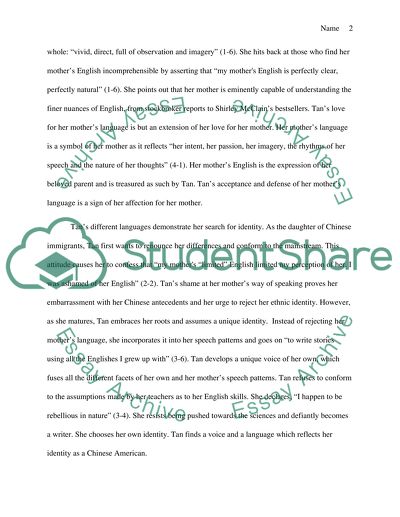Cite this document
(“Amy Tan: Mother Tongue Essay Example | Topics and Well Written Essays - 750 words”, n.d.)
Retrieved de https://studentshare.org/english/1632159-essay
Retrieved de https://studentshare.org/english/1632159-essay
(Amy Tan: Mother Tongue Essay Example | Topics and Well Written Essays - 750 Words)
https://studentshare.org/english/1632159-essay.
https://studentshare.org/english/1632159-essay.
“Amy Tan: Mother Tongue Essay Example | Topics and Well Written Essays - 750 Words”, n.d. https://studentshare.org/english/1632159-essay.


